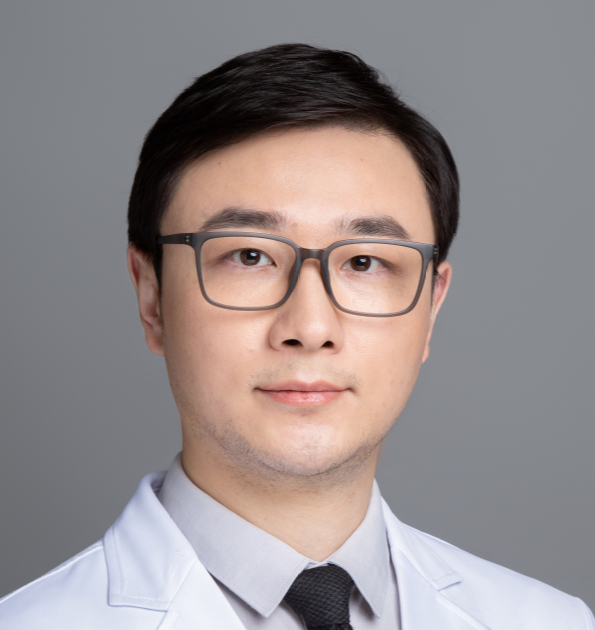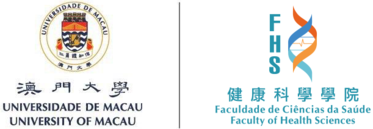聯絡信息

職稱
助理教授
辦公室
(辦公室)E12-3030
/(實驗室)N22-3002a
電話
(辦公室) +853 8822 9181
/ (實驗室) +853 8822 4218
諮詢時間
星期二、五 11:00 – 12:00
研究團隊
| 名稱 | 職稱 | 辦公室 | 電話 | 電郵 |
|---|---|---|---|---|
| 裴欣 | 博士生 | N22-3013 | +853 8822 2953 | yc37653@um.edu.mo |
| 張雪 | 研究助理 | N22-3013 | +853 8822 2953 | xuezhang@um.edu.mo |
| 裴欣 | 博士生 | |||
| 侯蕊 | 博士生 |
| Education | |
| PhD | University of Chicago, USA, 2015 Nanjing Medical University, China, 2015 |
| MSc | Nanjing Medical University, China, 2012 |
| BSc | Southeast University, China, 2009 |
| Position | |
| 12/2022 – Present | Assistant Professor, Faculty of Health Sciences, University of Macau, Macau SAR, China |
| 10/2019 – 10/2022 | Associate Professor & Attending Surgeon, Liver Cancer Program, Sun Yat-sen University Cancer Center, Guangzhou, China |
| 03/2018 – 03/2019 | Research Officer (Level 3), Cancer Immunotherapy Program, QIMR Berghofer Medical Research Institute, Brisbane, Australia |
| 08/2015 – 08/2019 | Resident & Postdoctoral Fellow, Department of Liver Surgery, Renji Hospital, Shanghai Jiaotong University School of Medicine, Shanghai, China |
| Research Interests |
| In the light of liver-specific or therapy-induced cues within the cancer microenvironment, our group focuses on the mechanistic study of adaptive cell signaling and consequent immunomodulation, which may impact clinical outcome and illuminate combination immunotherapy. Typically, we are looking at how therapy-induced inflammation adapts T cell signaling, to explore whether the underlying molecular traits can apply to tailoring T cell-based immunotherapy. |
| Representative Publications |
|
| Full publications list |
| Research Grants | |
| 2023 | Type II Grant of Ministry of Education Frontiers Science Centre for Precision Oncology, University of Macau (SP2023-00001-FSCPO), MOP 200,000 |
| 2022 | Start-up Fund, University of Macau, MOP 1,800,000 |
| 2022 | General Program, National Natural Science Foundation of China (82271881), CNY 520,000 |
| 2020 | Guangdong Provincial Science Fund for Distinguished Young Scholars (2021B1515020007), CNY 1,000,000 |
| 2019 | Hundred Talent Program, Sun Yat-sen University (2019079), CNY 900,000 |
| 2018 | General Program, National Natural Science Foundation of China (81871970), CNY 540,000 |
| 2016 | Joint Program for Medicine and Engineering, Shanghai Jiaotong University, CNY 120,000 |
| 2016 | General Program, National Natural Science Foundation of China (81672801), CNY 630,000 |
| 2015 | Dawn Program, Shanghai Municipal Education Commission (15CG13), CNY 60,000 |
| 2013 | Youth Program, National Natural Science Foundation of China (81302106), CNY230,000 |
| Professional Activities |
|
| Patents |
|
| Awards | |
| 2020 | Distinguished Young Scholars in Guangdong Province |
| 2019 | Hundred Talent Program in Sun Yat-sen University |
| 2016 | Excellent Resident in Renji Hospital |
| 2015 | Excellent Doctoral Thesis in Jiangsu Province |
| 2015 | Excellent Graduate of Nanjing Medical University |
| 2014 | Participant of the 64th Lindau Nobel Laureate Meetings (Germany) |
| 2014 | The University of Chicago Scholarship for Joint PhD Program (USA) |
| 2014 | National Scholarship for Excellent Postgraduates (China) |
| 2013 | National Scholarship for Excellent Postgraduates (China) |
| 2012 | Excellent Master Thesis in Jiangsu Province |

